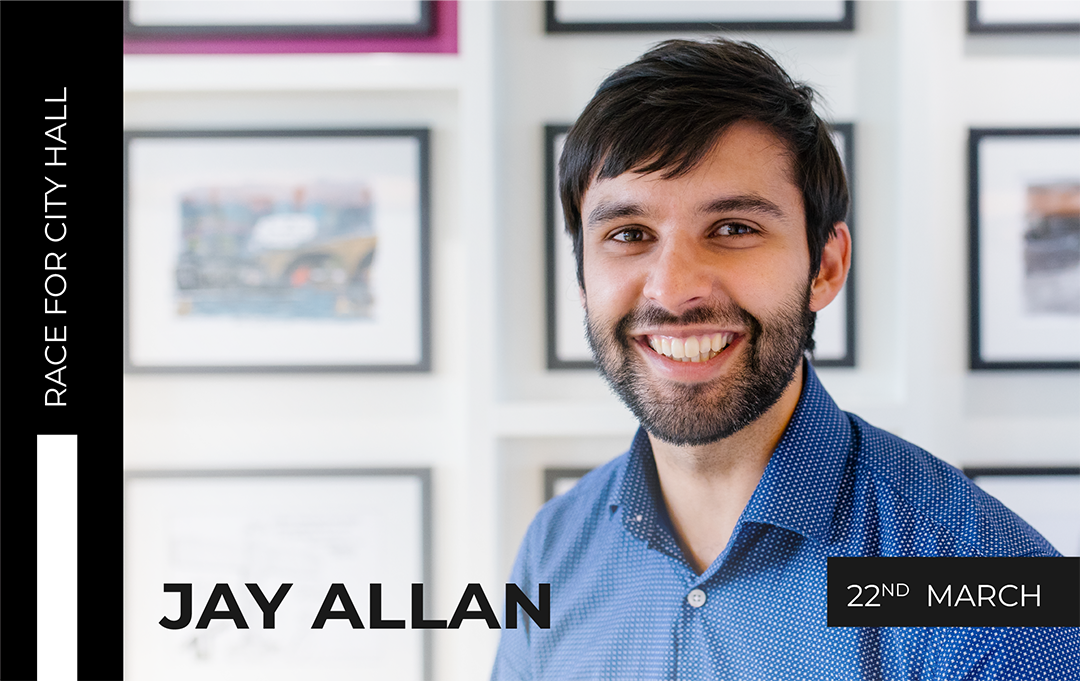Posted: 22.03.24
Race for City Hall: Can the regeneration of our City be a vote winner (or loser)?
Regeneration. Transformation. Placemaking.
For those of you unfamiliar with our industry’s lingo, all these words (at least in my mind) mean essentially the same thing: delivering lots of homes, jobs and new green/public spaces.

Perhaps this is a bit of a gross simplification of what complex mega regeneration projects can achieve for the communities we live in. But what is undeniable is that we need plenty more of these things to ensure London remains one of the top places to live, work, study and visit.
This isn’t lost on London’s electorate either. Ashcroft Polling, carried out in November last year, shows that the top five issues facing the capital include affordable housing, the economy and jobs, and reducing crime. These have arguably become key battlegrounds for the two leading London mayoral hopefuls, Sadiq Khan (Labour) and Susan Hall (Conservative), come 2 May.
While there’s no silver bullet to addressing these challenges, some of the capital’s biggest ‘regeneration, transformation and placemaking’ schemes can, and have, provided a much-needed shot in the arm for some of the city’s most deprived areas.
Take the story of Kings Cross - an area previously known for its buzzing nightlife and as a hub of creativity, was also simultaneously a symbol of blight and decay, with high levels of crime, unemployment and disused buildings, warehouses and contaminated land.
Step forward Related Argent in 2001*, and over two decades later, Kings Cross is now one of the most celebrated redevelopments in the world, with thousands of new homes (including affordable), jobs, places to eat and shop, new public parks and squares and much more.
Related Argent’s rescue package is just one of many examples that show how developers – with the right vision, plan and expertise – can meet some of the key challenges facing London today. It’s little surprise, then, that the wider project is held up as an exemplar, to be replicated elsewhere.
It’s therefore natural to think that backing major ‘regeneration’ projects could translate into lots of votes for the two main mayoral candidates.
However, after working in the industry for almost a decade, it’s not as simple as that.
While Londoners are generally more positive about building new homes in their area than in other parts of the country, without naming and shaming, we’ve seen some ‘placemaking’ schemes where existing communities feel disenfranchised, disconnected and disengaged (basically any word beginning with ‘dis’). There are valid fears among some communities that big regeneration schemes could see the local population displaced, while the changing character could force up the cost of living , creating anxiety.
It’s a question we’re constantly asked by residents across our work – ‘what’s in it for them?’ – which can lead to some local politicians feeling uneasy about the impact this is having on the communities they represent. In turn, some may become agitated about change, forcing them to potentially oppose truly positive, transformative developments for political survival
On that note, we haven’t heard much so far from Khan or Hall on their thoughts on ‘regeneration, transformation and placemaking’ , and how this has impacted the relationship between new and existing communities.
Khan has perhaps demonstrated this in action more than words and, as the incumbent, has a bit of a natural head start over his main rival, with the London Plan and its Opportunity Areas setting out his stall for the capital.
Partnering with developers to transform many of the Greater London Authority’s landholdings is also a vital part of his ‘regeneration’ ambitions. Prime and recent examples include the likes of TwelveTrees Park in Newham, which is being delivered alongside Berkeley Homes**as well as the GLA’s recent call out for development partners to deliver the next phase of the Royal Docks.***
Striking the right balance between delivering the homes and jobs the capital needs through these big schemes, while simultaneously working to bring existing communities and potential core voters along the journey with them, will be something both main candidates will need to grapple with.
I suspect whoever deals with this the best will only help their chances come polling day – and I’m sure our clients and associates will be keeping a beady eye out for any manifesto titbits and potential policies filtering out over the weeks and months ahead.
*Shameless plug, we’ve supported Related Argent on this project for almost 25 years…
**Another shameless plug I’m afraid – we’re working with Berkeley Homes too.
***I have unashamedly chosen mega projects across east London, where we have real expertise in.
